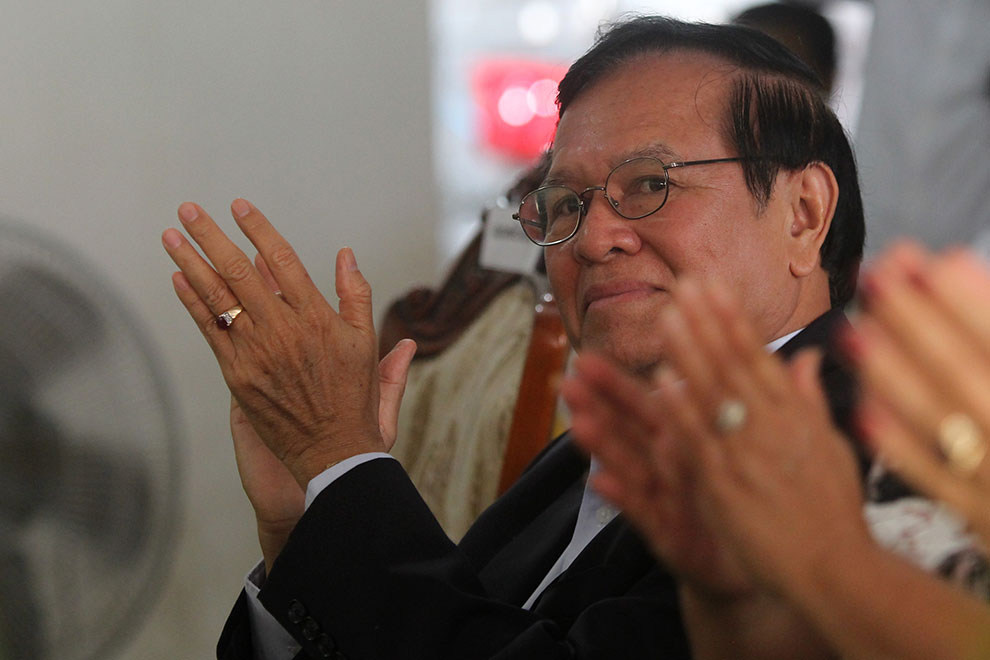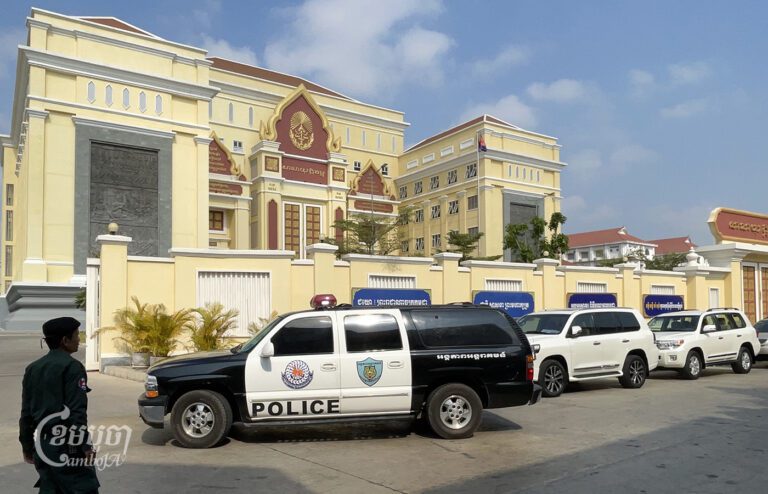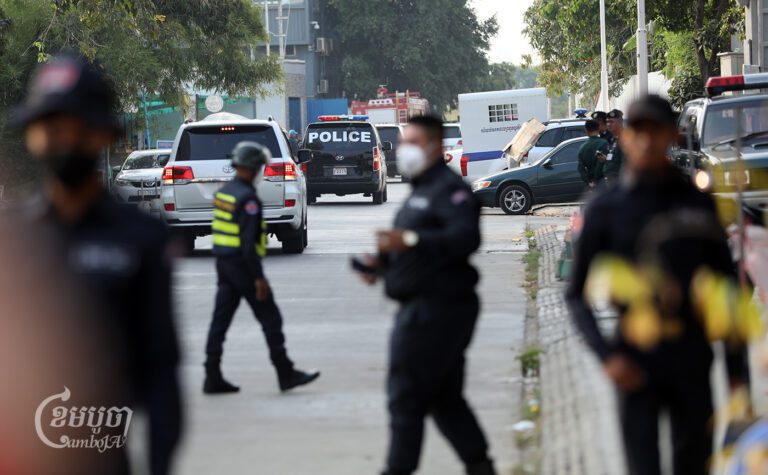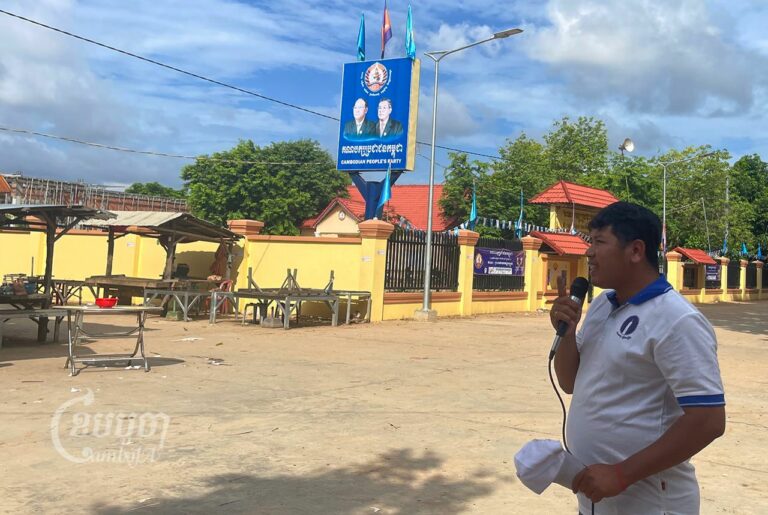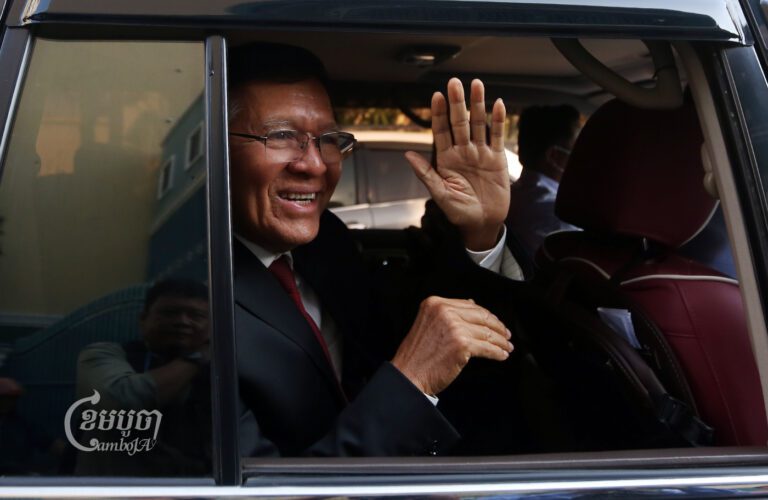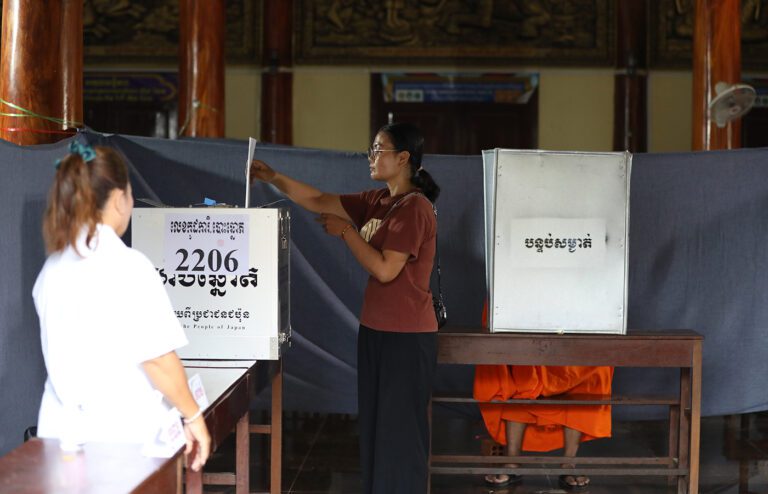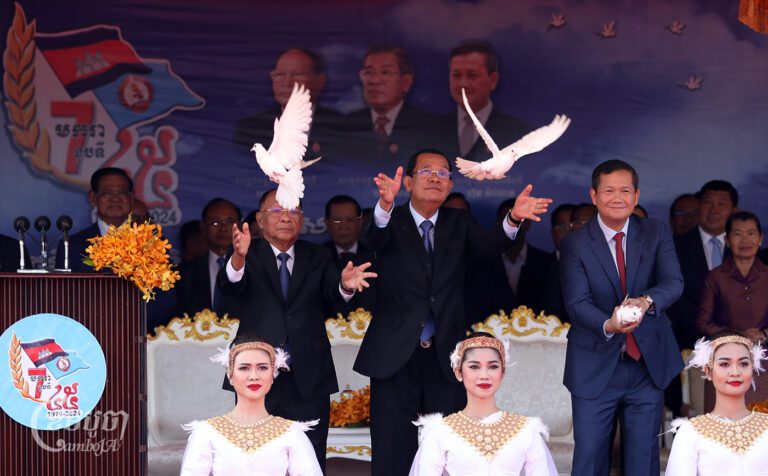The United States expressed concern on Wednesday over the recent arrests of Cambodia National Rescue Party (CNRP) activists over alleged plots to welcome exiled opposition leader Sam Rainsy upon his promised return.
The U.S. also urged the government to release the arrested activists and create a space for democracy in the country.
Police arrested six activists from the dissolved opposition party last weekend over alleged plans to hold demonstrations and try to prevent authorities from arresting Rainsy if he comes back to Cambodia on November 9, according to police spokesman Chhay Kim Khoeun.
The six arrests — Tum Bunthan, Ly Mengkheang, Ly Tin, Chhun Thaiyuth, Yat Phearum and You Chantheany — brought the total arrests of CNRP activists to 26 so far this year, according to a CNRP statement.
Rainsy, who has been living mostly in France to avoid arrest from numerous convictions, has declared that he and other opposition leaders living in exile would attempt a return to Cambodia on November 9, the country’s Independence Day.
“The United States is concerned about the Cambodian government’s continued political repression of former Cambodian National Rescue Party, or CNRP, members, including the recent arrests of several former CNRP activists,” U.S. State Department spokeswoman Morgan Ortagus said in a video statement on Twitter.
“We continue to urge the Cambodian government to remove undue political restrictions on all persons in Cambodia and to release those prisoners who have been arbitrarily or unlawfully detained, including Kem Sokha,” Ortagus said.
Ortagus urged the Cambodian government to allow a genuine multiparty democracy and to protect human rights and fundamental freedoms, which includes removing any undue restrictions on the political activities of all 118 opposition members, who were banned from participating in politics for five years in 2017 alongside the Supreme Court’s dissolution of the the CNRP.
In a statement on September 17, ASEAN Parliamentarians for Human Rights (APHR) urged the Cambodian authorities to end the “assault” on opposition members and activists, drop all politically motivated charges against them and immediately release all those in custody.
“The timing of these most recent arrests is preposterous. They are a clear attempt to threaten and silence opposition members and any activists showing support for the return of CNRP leaders. Will Hun Sen only stop spreading fear once all his critics are behind bars?” asked Charles Santiago, Malaysian member of parliament and APHR chair.
Kasit Piromya, an APHR board member and former Thai MP, said that Cambodia’s neighboring countries have a duty to support all efforts towards political dialogue in Cambodia and should not kneel to the demands of an “increasingly dangerous autocrat Hun Sen.”
“It’s not too late for Hun Sen to reverse course. The Cambodian people will have their say and it’s in everyone’s interests, including those in the ruling CPP, that open dialogue and genuine political discourse are permitted,” said Piromya.
Mu Sochua, the CNRP’s deputy president, said Hun Sen was afraid of a repeat of 2013 when hundreds of thousands of people welcomed Rainsy at Phnom Penh International Airport as he arrived. The CNRP won over 43 percent of votes 10 days later in the 2013 general election.
“The date is set. Nothing will stop our journey for democracy in Cambodia,” Sochua said, adding that the government must respond to the CNRP’s five-point demand, which includes the immediate and unconditional release of Kem Sokha and the party’s safe return to politics.
In a weekly news conference on Thursday, government spokesman Phay Siphan dismissed U.S. concerns and demands.
“An order or request to the Royal Government of Cambodia is not possible, we do not have the power to act in full contempt of court duty,” Siphan said.
Ruling party spokesman Sok Eysan said in a Telegram message that those detained had committed crimes and the reinstatement of the CNRP was impossible.
“The imprisonment of some people is not because they burnt incenses, but because they caused unrest and public disorder, disturbing other people,” Eysan said.
“The CNRP has already become a ‘ghost’ and can never be resurrected under any circumstances,” he said.


